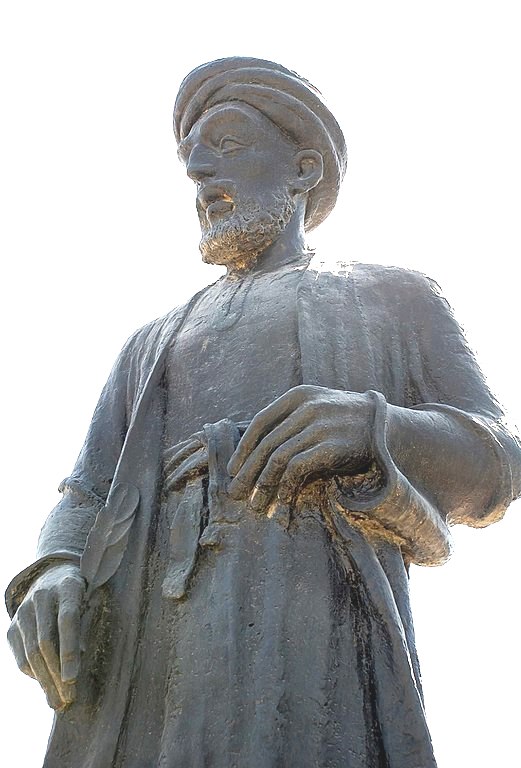al-Kindī and al-Khalīl
In a lecture hosted on the computer science department of Columbia University (https://www.cs.columbia.edu/~smb/classes/f20/l_crypto-1-intro.pdf; accessed 2022), the author wrote on page 14: "Al-Kindi published a ground-breaking work on cryptanalysis circa 850 in Baghdad—but that implies that he encountered sophisticated methods of encryption. Al-Khalil wrote a (now-lost) book on cryptography in Basra about 75 years earlier."
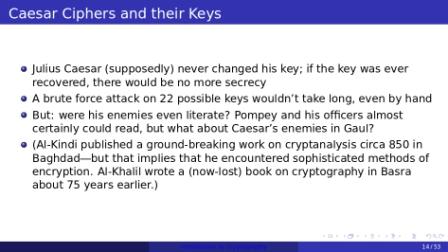
More information about cryptography can be found in a 2009 paper titled Charting Arabic Cryptology’s Evolution.
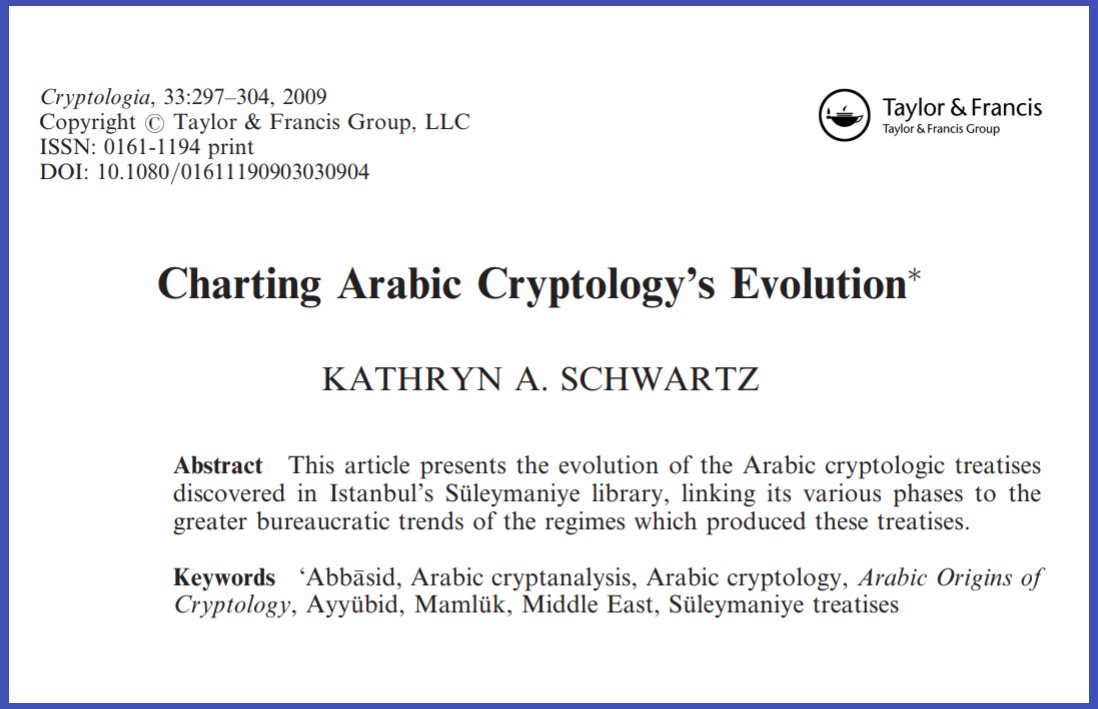
Below is a description of al-Kindī provided by Wikipedia (accessed 2021):
"Abu Yūsuf Yaʻqūb ibn ʼIsḥāq aṣ-Ṣabbāḥ al-Kindī (/ælˈkɪndi/; Arabic: أبو يوسف يعقوب بن إسحاق الصبّاح الكندي; Latin: Alkindus; c. 801–873 AD) was an Arab Muslim philosopher, polymath, mathematician, physician and music theorist. Al-Kindi was the first of the Islamic peripatetic philosophers, and is hailed as the "father of Arab philosophy".
Al-Kindi was born in Kufa and educated in Baghdad. He became a prominent figure in the House of Wisdom, and a number of Abbasid Caliphs appointed him to oversee the translation of Greek scientific and philosophical texts into the Arabic language. This contact with "the philosophy of the ancients" (as Hellenistic philosophy was often referred to by Muslim scholars) had a profound effect on him, as he synthesized, adapted and promoted Hellenistic and Peripatetic philosophy in the Muslim world. He subsequently wrote hundreds of original treatises of his own on a range of subjects ranging from metaphysics, ethics, logic and psychology, to medicine, pharmacology, mathematics, astronomy, astrology and optics, and further afield to more practical topics like perfumes, swords, jewels, glass, dyes, zoology, tides, mirrors, meteorology and earthquakes.
In the field of mathematics, al-Kindi played an important role in introducing Indian numerals to the Islamic world, and subsequently, relabeled as Arabic numerals, to the Christian world, along with Al-Khwarizmi. Al-Kindi was also one of the fathers of cryptography. Building on the work of Al-Khalil (717–786), Al-Kindi's book entitled Manuscript on Deciphering Cryptographic Messages gave rise to the birth of cryptanalysis, was the earliest known use of statistical inference, and introduced several new methods of breaking ciphers, notably frequency analysis. Using his mathematical and medical expertise, he was able to develop a scale that would allow doctors to quantify the potency of their medication."
Below is a portrait of al-Kindi:
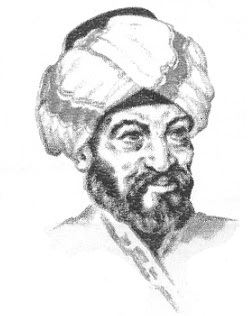
Below is the picture of the first page of al-Kindi's manuscript "On Deciphering Cryptographic Messages", containing the oldest known description of cryptanalysis by frequency analysis.
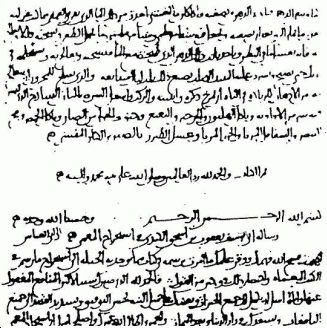
Below is a descriptionof el-Khalil provided by Wikipedia (accessed 2021):
"Abu ‘Abd ar-Raḥmān al-Khalīl ibn Aḥmad ibn ‘Amr ibn Tammām al-Farāhīdī al-Azdī al-Yaḥmadī (Arabic: أبو عبدالرحمن الخليل بن أحمد الفراهيدي; 718 – 786 CE), known as Al-Farāhīdī, or Al-Khalīl, was an Arab philologist, lexicographer and leading grammarian of Basra based on Iraq. He made the first dictionary of the Arabic language – and the oldest extant dictionary – Kitab al-'Ayn (Arabic: كتاب العين "The Source") – introduced the now standard harakat (vowel marks in Arabic script) system, and was instrumental in the early development of ʿArūḍ (study of prosody), musicology and poetic metre. His linguistic theories influenced the development of Persian, Turkish, Kurdish and Urdu prosody. The "Shining Star" of the Basran school of Arabic grammar, a polymath and scholar, he was a man of genuinely original thought.
Al-Farahidi was the first scholar to subject the prosody of Classical Arabic poetry to a detailed phonological analysis. The primary data he listed and categorized in meticulous detail was extremely complex to master and utilize, and later theorists have developed simpler formulations with greater coherence and general utility. He was also a pioneer in the field of cryptography, and influenced the work of Al-Kindi."
Below is a statue of Al-Khalīl:
